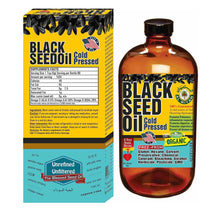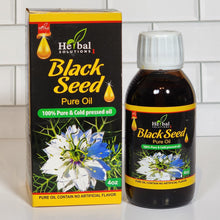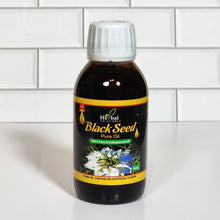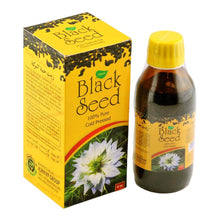Black Seed Oil - Nature's Shield 8oz/16oz
Regular price
$ 0.00
$ 23.99
Sale
The seeds of the annual flowering plant, Nigella Sativa, have been prized for their healing properties since time immemorial. It is known today primarily as black seed, which is at the very least an accurate description of its physical appearance. Frequently referred to among English-speaking cultures as Roman coriander, black sesame, black cumin, black caraway and onion seed.
Early History: Black seed oil, in fact, was found in Egyptian Pharaoh Tutankhamun’s tomb, dating back to approximately 3,300 years ago. In Arabic cultures, black cumin is known as Habbatul barakah, meaning the “seed of blessing.” It is also believed that the Islamic prophet Mohammed said of it that it is “a remedy for all diseases except death.”
Benefits include: improving immune function, balancing cholesterol, fighting infections, fighting harmful pathogens, reducing inflammation, reducing risk of certain cancers and improving cognitive performance. Other benefits includes supporting liver health, combating type-2 diabetes, improving skin health, supporting eye health and supporting hair growth.
How we use Black Seed Oil:
- As dietary supplement of adult, take 1-2 teaspoon daily with food or beverage.
- By mouth: In the morning and again at night, take a teaspoon on an empty stomach and a teaspoon at night right before going to bed.
- Topically: Hair Growth--Massage a few drops on scalp and concentrate any problem areas. Facial Care--Take a half a teaspoon and massage on face and neck, then grab a hot washcloth to ensure the Black Seed Oil penetrates while removing the excess oil.
Note: Black Seed Oil, cold pressed of the highest quality is thick, dark with a strong spicy smell. However, the result are amazing when you use it regularly.








